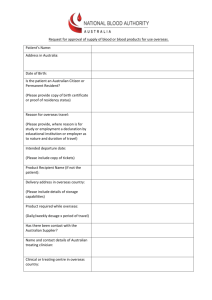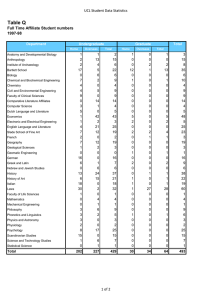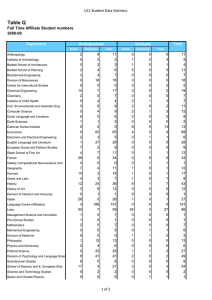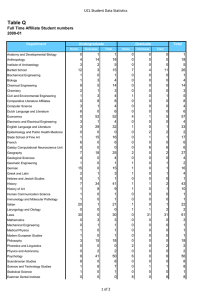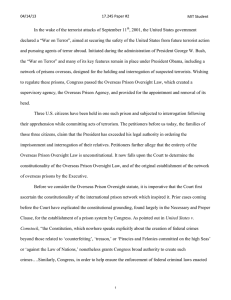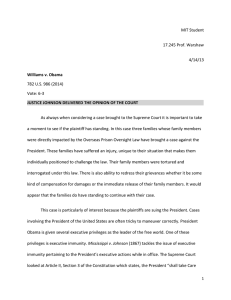Document 13493904
advertisement
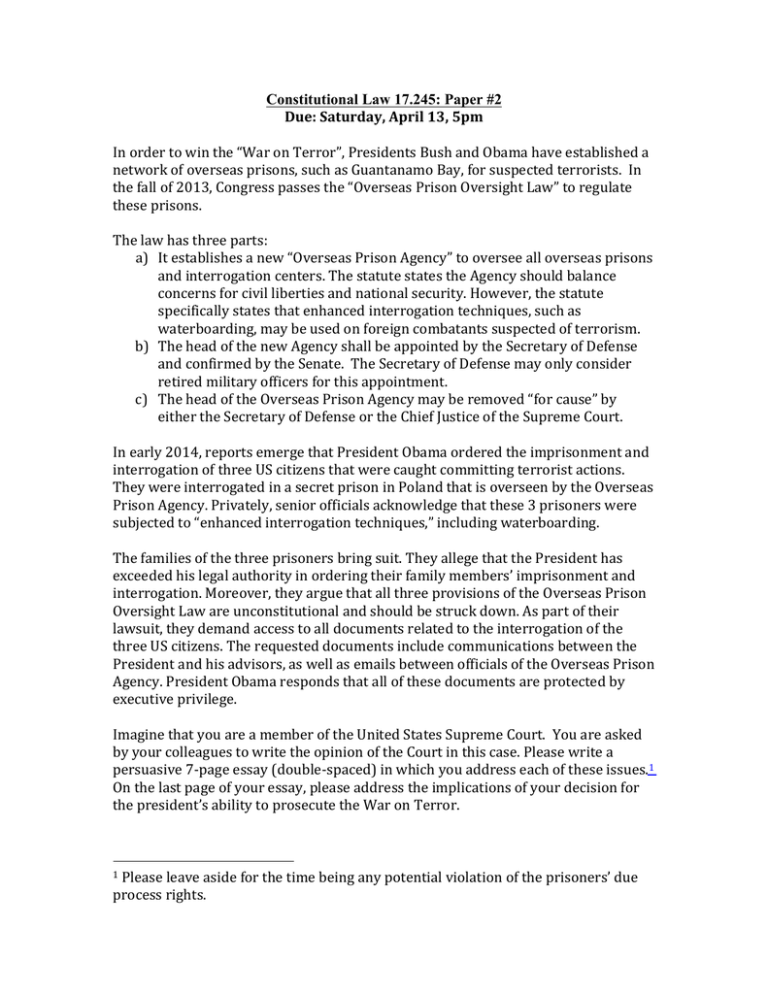
Constitutional Law 17.245: Paper #2 Due: Saturday, April 13, 5pm In order to win the “War on Terror”, Presidents Bush and Obama have established a network of overseas prisons, such as Guantanamo Bay, for suspected terrorists. In the fall of 2013, Congress passes the “Overseas Prison Oversight Law” to regulate these prisons. The law has three parts: a) It establishes a new “Overseas Prison Agency” to oversee all overseas prisons and interrogation centers. The statute states the Agency should balance concerns for civil liberties and national security. However, the statute specifically states that enhanced interrogation techniques, such as waterboarding, may be used on foreign combatants suspected of terrorism. b) The head of the new Agency shall be appointed by the Secretary of Defense and confirmed by the Senate. The Secretary of Defense may only consider retired military officers for this appointment. c) The head of the Overseas Prison Agency may be removed “for cause” by either the Secretary of Defense or the Chief Justice of the Supreme Court. In early 2014, reports emerge that President Obama ordered the imprisonment and interrogation of three US citizens that were caught committing terrorist actions. They were interrogated in a secret prison in Poland that is overseen by the Overseas Prison Agency. Privately, senior officials acknowledge that these 3 prisoners were subjected to “enhanced interrogation techniques,” including waterboarding. The families of the three prisoners bring suit. They allege that the President has exceeded his legal authority in ordering their family members’ imprisonment and interrogation. Moreover, they argue that all three provisions of the Overseas Prison Oversight Law are unconstitutional and should be struck down. As part of their lawsuit, they demand access to all documents related to the interrogation of the three US citizens. The requested documents include communications between the President and his advisors, as well as emails between officials of the Overseas Prison Agency. President Obama responds that all of these documents are protected by executive privilege. Imagine that you are a member of the United States Supreme Court. You are asked by your colleagues to write the opinion of the Court in this case. Please write a persuasive 7-­‐page essay (double-­‐spaced) in which you address each of these issues.1 On the last page of your essay, please address the implications of your decision for the president’s ability to prosecute the War on Terror. 1 Please leave aside for the time being any potential violation of the prisoners’ due process rights. MIT OpenCourseWare http://ocw.mit.edu 17.245 Constitutional Law: Structures of Power and Individual Rights Spring 2013 For information about citing these materials or our Terms of Use, visit: http://ocw.mit.edu/terms.


